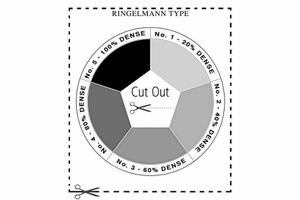Are car fumes or bonfires the real burning issue?
Whether the right area is being targeted is debatable as Environment & Infrastructure seeks to introduce legal standards on air quality to combat pollutants. The worry, as with any new law, is about enforcement, particularly when it comes to bonfires and car fumes

WHILE the world worries about the global impact of Trump and Brexit, Guernsey's States members will go into the chamber tomorrow to decide when you can have a bonfire and what you can burn on it.
The topsy-turvy world that we live in.
OK, that's a rather flippant way of looking at things.
The other is to take the stance that air quality and controlling pollutants and therefore the health impacts is a key challenge, the success of which will benefit us all.
Essentially the recommendations from Environment & Infrastructure, themselves based on recommendations from the director of environmental health and pollution regulation, seek to introduce legal standards where there were none so that action can be taken not just on black smoke coming from bonfires but also on things such as commercial boilers.
What is less clear is the evidence base being used to say all the licences and red tape that will ensue are needed, or whether the right area is the focus.
The majority of people in a 2016 survey did not think air pollution was a problem in Guernsey, but even then the thing that concerned them most was not bonfire smoke but vehicle emissions.
And of course they are right, because the only localised hot spots that in any way exceed the incoming standards are roads.
The report is pretty quiet on what these new standards would mean for those areas, but has plenty to say on bonfires – given there were 303 complaints about bonfires and smoke in the last two years, that is something that does bother the public.
Yet even when standards are in place, that does not always mean action will be taken.
London reached its annual limit for pollution in just five days this year, and during the recent cold, windless weather had air quality that was worse than Beijing.
It made for headlines but not action.
Paris has taken action after five days of elevated pollution, temporarily banning cars registered before 2006 from the roads.
But statistics show that air quality there is actually improving in the long term.
If you are interested in Guernsey's air quality, the States website carries a report giving comparable data between 2010 and 2014 – it also has live monitoring at Bulwer Avenue and Lukis House.
Yesterday the pollution levels were reported as low.
Air quality monitoring has been carried out since 1992 and the States report says it is generally very good.
It did not exceed English standards, but at times did the more stringent Scottish standards for nitrogen oxide in Fountain Street, Bulwer Avenue and the Bridge area.
These are not areas where bonfires are prevalent – and we are not looking to introduce those tougher standards.
Of course, the simple way with dealing with these hot spots would be to close the roads when conditions are bad for a sustained period – that does not require any kind of States report.
There are question marks in the assessment document about the quality of some of the readings being taken when monitoring different pollutants – that is clearly something that needs to be addressed if anyone is to have confidence in the regime and evidence on which the States is being asked to act.
The fear, as with any new legislation, is about enforcement, particularly when it comes to bonfires.
In the States report, we know there are plenty of complaints, but not whether these are all separate locations or incidents, whether they were justified or if action was successfully taken under the existing regime. There are already powers to stop smoky bonfires if they are a 'nuisance or prejudicial to health'.
That would seem pretty wide ranging, although the new law focuses on dark smoke and enforcement action is not reliant on seeing the smoke itself but could use the evidence of burnt materials such as tyre carcass or plastic residues.
There is actually a standard used when deciding what is dark smoke. You have to compare it with the Ringelmann chart – if it has a shade of two or darker, it is in breach under the proposed law.
What a job that would be, just like trying to match up paint in B&Q. Maybe they use it when a new pope is elected.
To help States members in the debate – and eventually the public – there's a handy cut out and keep one attached here.
Perhaps these new laws are not so much about where we are today but where we may need to get to as more evidence emerges about the links between air pollution and, say, incidents of breathing conditions such as asthma.
Equally, Guernsey will always benefit from the technological advances being driven by European and global standards without any need to add to the burgeoning list of legislation itself – just see what is happening to new-vehicle emissions, or other major sources of pollution – aviation, shipping and power generation.
There needs to be healthy scepticism over legislation like this – we are not about to become a major industrial manufacturing hub with steel furnaces belching out black smoke.
The report also says there are no resource implications, but of course there are. In staff time compiling the report, in more staff time in drawing up the legislation and then in enforcing it.
There is also a cost for those who will need to pay for licences – and a proposal that a new post is funded.
These things tend to snowball in a self-fulfilling way too.
Much focus of this new law has been on bonfires, too little on the hot spot vehicle emission areas.
Those proposing it will have one eye on the incoming waste strategy too.
As the waste charges rise significantly, so does the incentive to burn rubbish.
So can we can look forward to a future of neighbours hanging out their windows on a Saturday morning, Ringelmann chart in one hand, phone in the other shouting down the line at the pollution police?
And does this all pass the common sense and proportionality test?





